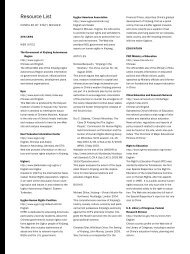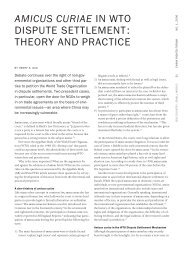STATE SECRETS: CHINA'S LEGAL LABYRINTH - HRIC
STATE SECRETS: CHINA'S LEGAL LABYRINTH - HRIC
STATE SECRETS: CHINA'S LEGAL LABYRINTH - HRIC
Create successful ePaper yourself
Turn your PDF publications into a flip-book with our unique Google optimized e-Paper software.
32 HUMAN RIGHTS IN CHINA <strong>STATE</strong> <strong>SECRETS</strong>: CHINA’S <strong>LEGAL</strong> <strong>LABYRINTH</strong><br />
2. LACK OF TRANSPARENCY AND ACCOUNTABILITY<br />
China is required by international obligations, including under the UN Convention<br />
Against Corruption, to take measures to enhance transparency and accountability<br />
in public administration. 113 These measures include ensuring that the public<br />
has effective access to information and “respecting, promoting and protecting the<br />
freedom to seek, receive, publish, and disseminate information” concerning corruption.<br />
114<br />
The information classified in the regulations of various ministries, including the<br />
Ministry of Public Security, the Supreme People’s Court and the Ministry of Justice,<br />
provides an examination of the type and content of information the political<br />
elite considers important and potentially harmful to the continued stability of its<br />
rule. The very existence of these regulations casts doubts on the transparency of<br />
information flow in China and the accuracy of information that is released to the<br />
public.<br />
The great elasticity of state secrets protections has contributed to a widespread culture<br />
of secrecy in the official handling and dissemination of information. The government<br />
has control over 80% of relevant (有用) information in society. 115 This<br />
bottleneck of information is exacerbated by the lack of any independent supervisory<br />
mechanisms or precise classification standards.<br />
Good governance, supported by the respect for human rights, enables governments<br />
to frame policies that will enact change, but it cannot be achieved in a society<br />
where there is no transparency or accountability. Good governance is<br />
“necessary for sustainable social and economic development in which government,<br />
businesses and civil society work together to address challenges.” 116 Where states<br />
face challenges in development and in the implementation and respect for human<br />
rights, good governance is necessary to effectively address those challenges and<br />
frame solutions. 117 To the CPC, however, good governance has long rested on the<br />
principle of maintaining social stability and keeping a tight rein on information<br />
dissemination—including classifying critical information such as statistics related<br />
to health, the judicial system and the environment—in order to ensure political<br />
control.







